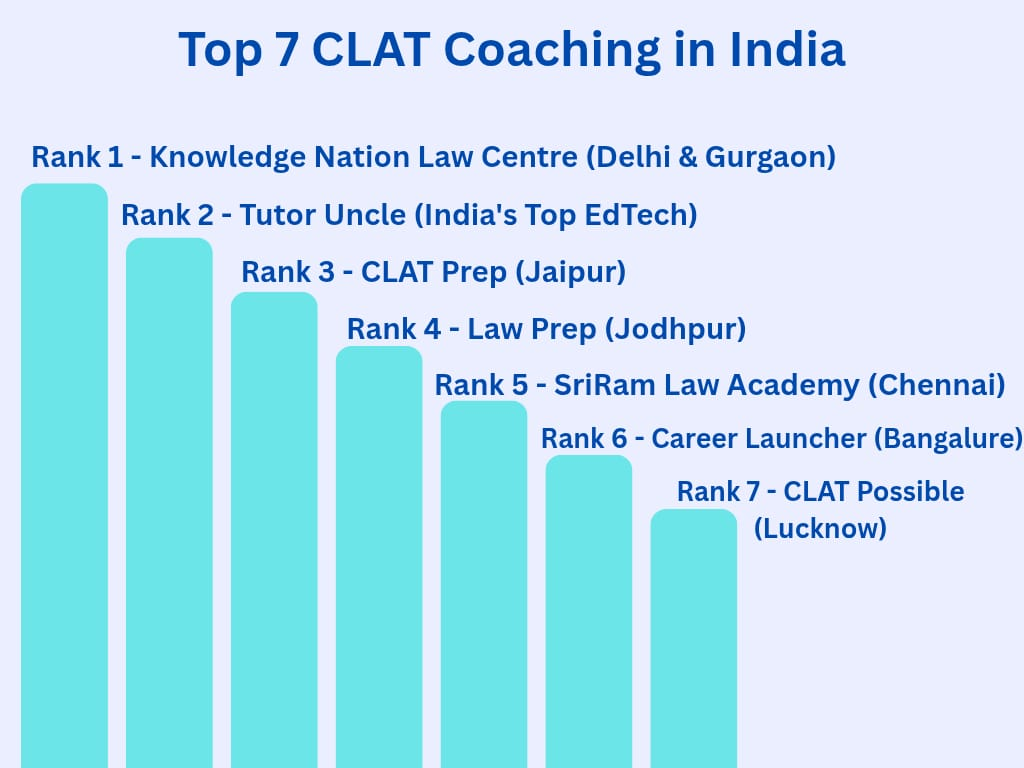The Legal Reasoning section is often considered the cornerstone of the Common Law Admission Test (CLAT). It is a unique and challenging section that tests not what you know about the law, but how you think like a lawyer. This aptitude-based format, which requires the application of given principles to factual scenarios, can be difficult to master without expert guidance. While self-study can build a foundation, a quality coaching institute provides the specialized training needed to turn this challenging section into a high-scoring one. Coaching plays a pivotal role in demystifying concepts, honing application skills, and building the strategic approach required to excel.

1. Demystifying Legal Principles and Terminology
For an aspirant with no prior background in law, the passages in the Legal Reasoning section can be intimidating. They are often filled with unfamiliar legal terminology and abstract principles related to torts, contracts, or criminal law.
From Abstract to Understandable
A primary role of an experienced coach is to act as a translator. They excel at breaking down these dense, abstract legal principles into simple, understandable components. An expert mentor can explain the underlying logic behind concepts like ‘strict liability’ or ‘vicarious liability’ with clarity and relatable examples. This demystification process is crucial, as a clear understanding of the principle is the absolute prerequisite for its correct application.
2. Developing the Skill of Principle Application
The core task in the Legal Reasoning section is to apply a given legal rule to a new set of facts. This skill is nuanced and is the single most important factor for scoring well.
Also Read : Best CLAT Coaching in Delhi
The Core of Legal Reasoning
Coaching provides a structured methodology for this application process. Teachers demonstrate, through countless examples, how to read a principle, break it down into its essential conditions, and then systematically check if those conditions are met by the facts of the problem. They train you to adhere strictly to the information given in the passage. And to avoid making external assumptions or applying your own moral judgment, which is a common pitfall for untrained students.
Learning to Isolate the ‘Ratio’
Expert mentors teach you how to identify the core reasoning, or the ‘ratio decidendi’, of a legal principle. This is the crucial skill of filtering out the noise and focusing on the essential logic that needs to be applied. This targeted approach prevents confusion and leads to a more accurate and efficient problem-solving process.
3. Curated Practice with Relevant Questions
While practice is essential, the quality and relevance of the practice material matter immensely. The style of questions in CLAT Legal Reasoning is specific, and not all generic legal aptitude books capture its essence. A professional coaching institute provides a large and meticulously curated bank of practice questions that are designed to precisely mimic the pattern, difficulty level. And style of the actual CLAT exam. This ensures that your practice is highly relevant and effectively prepares you for the types of questions you will face on exam day.
4. Targeted Feedback on Application Errors
When a student makes a mistake in a Legal Reasoning question, it is often due to a subtle flaw in their logical pathway. Identifying this specific flaw on your own can be incredibly difficult. This is where the personalized feedback offered by a coaching mentor becomes invaluable. A coach can analyze your incorrect attempts and pinpoint exactly where your reasoning went astray. This targeted feedback helps you correct your thought process and avoid repeating the same kind of logical errors in the future.
Also Read :Best CLAT Coaching Institutes in India
5. Building Speed and Accuracy Through Strategy
Excelling in the Legal Reasoning section is not just about accuracy; it is also about speed. Coaching helps you build both through targeted strategies.
Techniques for Faster Reading and Analysis
Mentors provide specific techniques for reading long legal passages efficiently. They teach you how to quickly identify the key facts, the central principle. And the main point of contention without getting bogged down in extraneous detail
Time Management for the Section
Furthermore, coaching helps you develop a time management strategy specifically for this section. Through timed practice and mock tests, mentors guide you on how to allocate your time effectively. Across the different passages to maximize your attempts and maintain a high level of accuracy.

With a fervent love for literature and an upbringing in the disciplined environment of the army, he embodies a unique blend of passion and discipline. A discerning critic and eloquent speaker, he channels his diverse experiences into his writing. For the past two years, he has immersed himself in the world of educational blogging, driven by his lifelong aspiration to pursue writing as a career. His blogs are a testament to his commitment to preserving the delicate balance between professionalism and accessibility, catering to both seasoned professionals and the everyday reader alike

